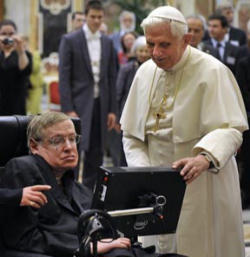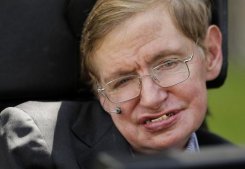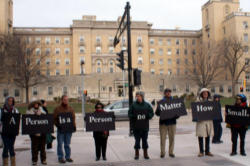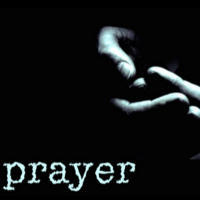On Monday May 15, 2011, scientist/cosmologist/physicist Stephen Hawking gave an interview to Ian Sample, the science correspondent for the Guardian Newspaper of the United Kingdom. It was entitled Stephen Hawking: ‘There is no heaven; it’s a fairy story’. There was nothing new contained in Hawkings’ answers to the questions posed by Sample. That is why I was so shocked to see the number of articles generated by the comments.
Hawking has one or several motor neurone diseases, amyotrophic lateral sclerosis (ALS). Diagnosed at the age of 21, he was not expected to live this long. He is currently 69 years old and has had a life of many accomplishments, and much heartache. He has written several books wherein his choice to not believe in the existence of God is made clear. It does not change God’s choice to believe in the existence of Stephen Hawking. In fact, if God failed to consider Stephen Hawking – to hold him in loving communion – Stephen Hawking would cease to exist. Thus the choice of my title for this piece, “Maybe Stephen Hawkings isn’t Real?”
He told the interviewer, “I have lived with the prospect of an early death for the last 49 years. I’m not afraid of death, but I’m in no hurry to die. I have so much I want to do first… I regard the brain as a computer which will stop working when its components fail. There is no heaven or afterlife for broken down computers; that is a fairy story for people afraid of the dark.” How sad. Clearly, this gifted man whose accomplishments have earned him so many accolades is viewed differently by his children.
Perhaps the best indicator of the hollowness of heart behind Hawkings answer is found in this short exchange, “So here we are. What should we do?” asked Sample. “We should seek the greatest value of our action… I have lived with the prospect of an early death for the last 49 years. I’m not afraid of death, but I’m in no hurry to die. I have so much I want to do first. I regard the brain as a computer which will stop working when its components fail. There is no heaven or afterlife for broken down computers; that is a fairy story for people afraid of the dark.”
It is precisely the search for value and meaning in our actions which has led countless millions to the exact opposite conclusion of Hawking. I am numbered among them. Belief in “heaven” is not about being afraid of the dark. It is the sure conviction that comes from living right now in a loving communion with the Lord. As my life unfolds, he is more real to me than I am to myself. In fact, I know that without Him I would not even be.
When I read the numerous articles feigning surprise or expressing indignation at the atheist claims of Stephen Hawking, I felt only sadness. I thought of the great Western Church Bishop Hippo Augustine who also ran from the Lord for many years. A prayer contained within his Confessions offers these beautiful words to the Lord,
“Late have I loved you, O Beauty ever ancient, ever new, late have I loved you! You were within me, but I was outside, and it was there that I searched for you. In my unloveliness I plunged into the lovely things which you created. You were with me, but I was not with you. Created things kept me from you; yet if they had not been in you they would have not been at all.
“You called, you shouted, and you broke through my deafness. You flashed, you shone, and you dispelled my blindness. You breathed your fragrance on me; I drew in breath and now I pant for you. I have tasted you, now I hunger and thirst for more. You touched me, and I burned for your peace.”
The Catholic Catechism affirms that science and faith are not at odds with these words, “Though faith is above reason, there can never be any real discrepancy between faith and reason. Since the same God who reveals mysteries and infuses faith has bestowed the light of reason on the human mind, God cannot deny himself, nor can truth ever contradict truth.” “Consequently, methodical research in all branches of knowledge, provided it is carried out in a truly scientific manner and does not override moral laws, can never conflict with the faith, because the things of the world and the things of faith derive from the same God. The humble and persevering investigator of the secrets of nature is being led, as it were, by the hand of God in spite of himself, for it is God, the conserver of all things, who made them what they are.” (CCC #159)
It addresses the search for value which Hawking mentions in these words “ Basic scientific research, as well as applied research, is a significant expression of man’s dominion over creation. Science and technology are precious resources when placed at the service of man and promote his integral development for the benefit of all. By themselves however they cannot disclose the meaning of existence and of human progress. Science and technology are ordered to man, from whom they take their origin and development; hence they find in the person and in his moral values both evidence of their purpose and awareness of their limits. (Catechism of the Catholic Church #2293)
In the Pastoral Constitution on the Role of the Church in the Modern World (Gaudium et spes) the Fathers of the Second Vatican Council made this claim, “ if methodical investigation within every branch of learning is carried out in a genuinely scientific manner and in accord with moral norms, it never truly conflicts with faith, for earthly matters and the concerns of faith derive from the same God. (6) Indeed whoever labors to penetrate the secrets of reality with a humble and steady mind, even though he is unaware of the fact, is nevertheless being led by the hand of God, who holds all things in existence, and gives them their identity. Consequently, we cannot but deplore certain habits of mind, which are sometimes found too among Christians, which do not sufficiently attend to the rightful independence of science and which, from the arguments and controversies they spark, lead many minds to conclude that faith and science are mutually opposed.” (GS 36)
The best reaction Christians can have to Stephen Hawking calling heaven a “fairy tale” is empathy. The best response we can make is prayer. Stephen Hawking is more than a computer. He is a person, created in the image and likeness of the One whose love for him keeps him in existence. The Blessed Pope John Paul II wrote a letter on the relationship between Faith and reason in 1998 which began with these words, “Faith and reason are like two wings on which the human spirit rises to the contemplation of truth; and God has placed in the human heart a desire to know the truth—in a word, to know himself—so that, by knowing and loving God, men and women may also come to the fullness of truth about themselves (cf. Ex 33:18; Ps 27:8-9; 63:2-3; Jn 14:8; 1 Jn 3:2).”
I suggest that behind Stephen Hawkings denial of the existence of the God who fashioned him and gifted him so bountifully is an insatiable hunger for the source of all truth. Perhaps what is driving him to his continual repetitive denials of the existence of God is a malady even more disabling than the disease he has confronted with such heroic courage, a restless heart. Again, it was St. Augustine who offers the only remedy with which to satiate that hunger. These words with which he began the Confessions quoted above are the real answer, “You have made us for yourself Oh Lord, and our hearts are restless until they rest in you.”


